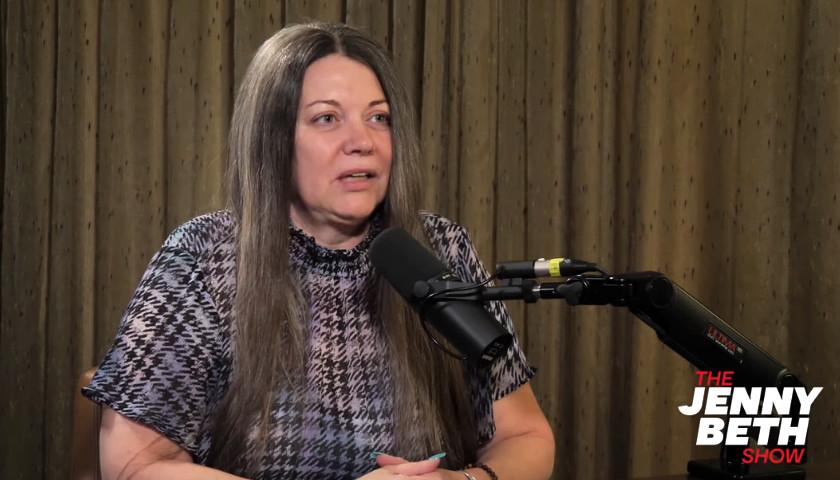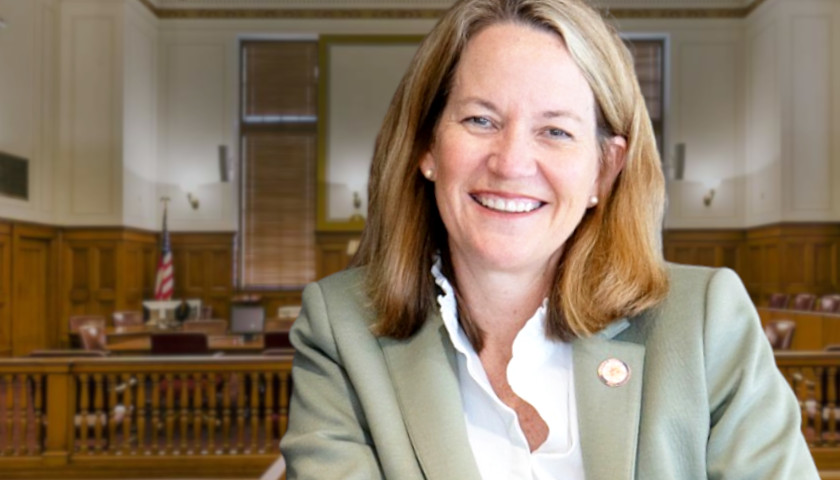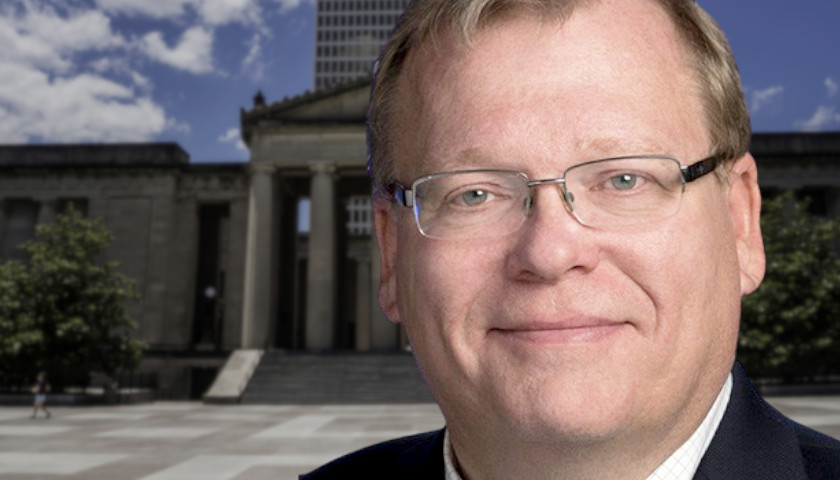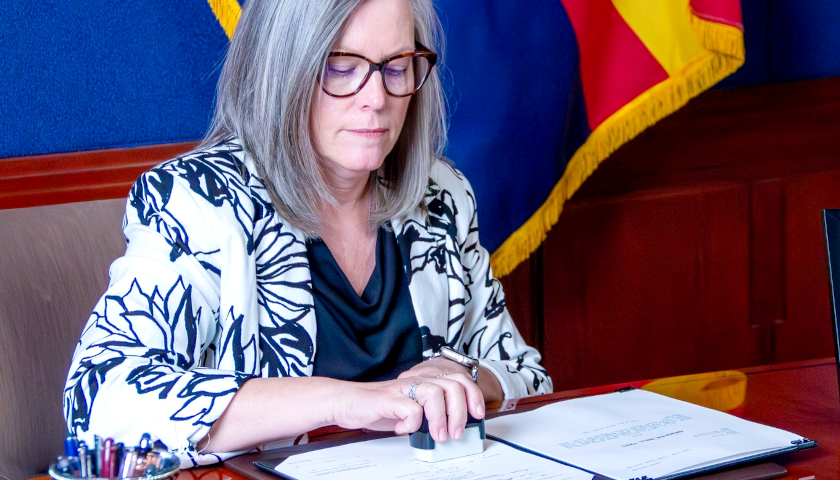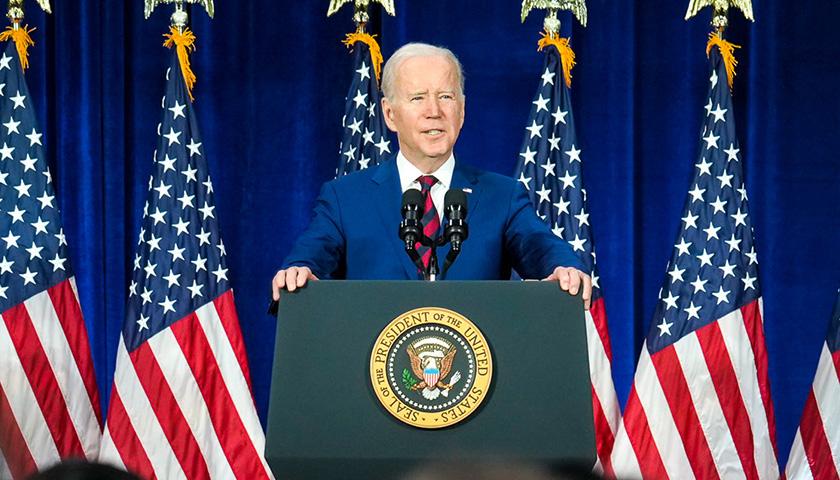Gina Swoboda, executive director of Phoenix-based Voter Reference Foundation (VRF) discussed election problems and what to do about them recently on the Jenny Beth Show. Jenny Beth Martin was an early leader in the Tea Party movement as co-founder of Tea Party Patriots. In this first part of a three-part series from the interview, Swoboda explained how VRF’s websites can be used to look through voter registrations and spot problems with the voter rolls.
Swoboda, who is also a Vice Chairman of the Arizona Republican Party and previously worked for the secretary of state’s office, told Martin, “The entire security of the election depends upon that list being accurate.”
VRF is a nonprofit “dedicated to promoting election transparency,” Swoboda said. A “primary focus” is publishing “the voter roll for the entire country” online, which she does at voteref.com. This gives the public “oversight of voterless maintenance,” since “the issue the public has is they can’t get the files.” She said voterless maintenance is one of her passions.
Swoboda explained how the voter rolls contain information on who is registered to vote, what party they are registered as — if required in their state — when they registered, and whether they’ve moved. She said county recorders run the elections, not state officials, a “common misperception.” Arizona’s 15 county recorders “maintain the list of all the voters who are eligible and then as their profile changes over time.”
She said there was a large increase in mail-in ballots around the country recently due to COVID-19, which resulted in many “ballots in the mail going to locations where this voter does not reside” due to poor voter list maintenance. Since ballots aren’t forwardable, she said she received calls from all over the country from people saying they’d received ballots from people who didn’t live there — including people who had lived at their residences for 20 years.
Swoboda explained how although 1,800 jurisdictions in Wisconsin, for example, run the elections, after the Help America Vote Act (HAVA) was passed in 2001 in response to the contentious 2000 presidential election between George Bush and Al Gore, the counties are required to upload the voter registration data to a statewide database. She asks each state elections official for a certified copy of the database, which she reproduces without cleaning.
One problem she sees is that when an election worker enters a new voter registration into the database, sometimes they cannot read what the date of birth or name says, so they’ll put in placeholders but neglect to fix them later. “So they enter like, oh 1-01-1900 as a placeholder … names of characters from Lord of the Rings.” This can lead to concerns of election fraud when it was really nothing nefarious.
Her website contains voter registration data from 34 states and the District of Columbia. She is currently in the process of uploading the latest data from the 2022 election. She said the site is useful for comparing how voter registration information has changed between elections. In order to conduct oversight of the voter rolls, Swoboda recommends going to their sister site, voterreferencefoundation.com, where they list the statutes and rules governing voter registration.
She cautioned people to be aware of the differences, especially regarding terminology. “I have heard people say the number of inactive and active voters in Wisconsin exceeds the population of Wisconsin that’s eligible to vote,” Swoboda said. “That’s a little, that’s accurate, but it’s a little misleading because ‘inactive’ in Wisconsin is ‘canceled’ In Arizona, if you’re in an ‘inactive’ status in Wisconsin, you can’t vote.” She added ‘inactive’ in Wisconsin means deceased or a felon, whereas the equivalent in Arizona is called “canceled.” In Arizona, inactive may just mean the process is being started to cancel a registration, such as if a piece of mail was returned as a bad address.
Swoboda suggested someone may want to clean up the voter rolls in their neighborhood. “So for example, it would be highly unlikely if you put in the address of a single family home on your block that there would be 150 registrants in it,” she said. Another suspicious activity she said people might investigate is casting ballots illegally for relatives. She gave an example of “Sheila” who lives in one state, who casts a ballot for her relative “Jimmy” who is also from that state, but is currently in another state attending school. Use the database to look and see if two ballots were cast by Jimmy in both states, she recommended.
Swoboda said “residency is a state of mind in most states.” Once someone believes they’ve found fraudulent voting, “You would wanna reach out to your local election official, to your county clerk, to your county recorder and say, I have these records. It looks to me like, you know, there’s a shenanigan.”
She warned people to check into the status of their relatives in nursing homes. “If you have a relative that’s in a memory care unit in another state, you might wish to check the voter registration to make sure that you don’t see a vote credit, because someone who has been deemed incompetent by a court is not eligible to vote, and no one is allowed to cast a ballot on their behalf.”
Arizona’s voter rolls are not included on the website due to a law prohibiting publication. The Arizona Legislature passed two bills earlier this year that would have allowed publication, but Democratic Governor Katie Hobbs vetoed them. The next two parts of the interview will focus on Arizona’s election problems.
– –
Rachel Alexander is a reporter at The Arizona Sun Times and The Star News Network. Follow Rachel on Twitter. Email tips to [email protected].
Image “Gina Swoboda” by Jenny Beth Martin.

